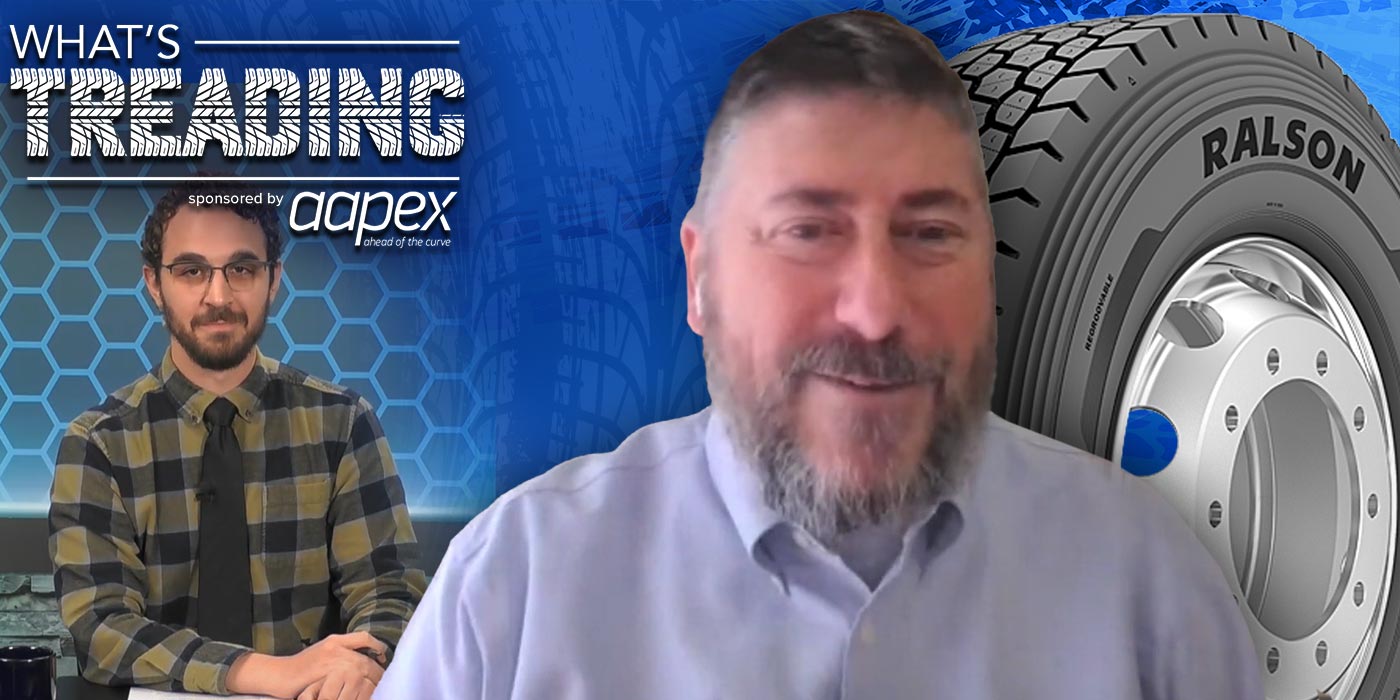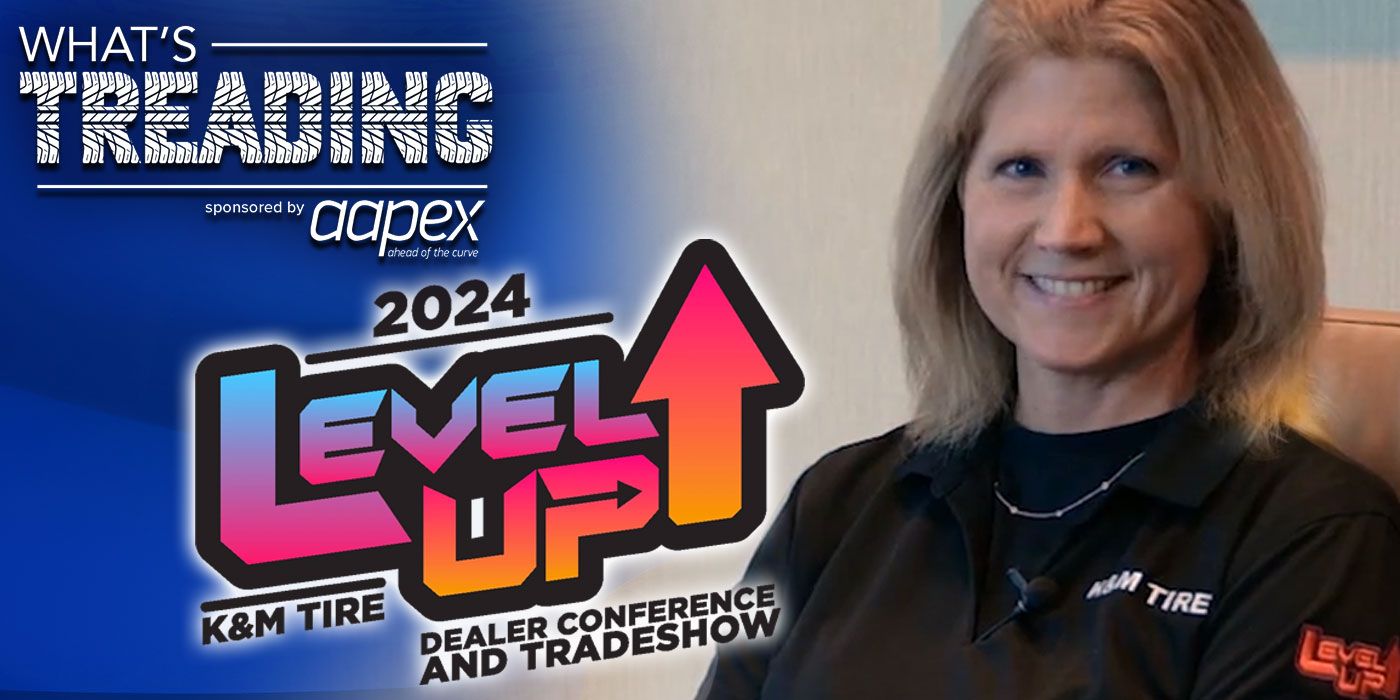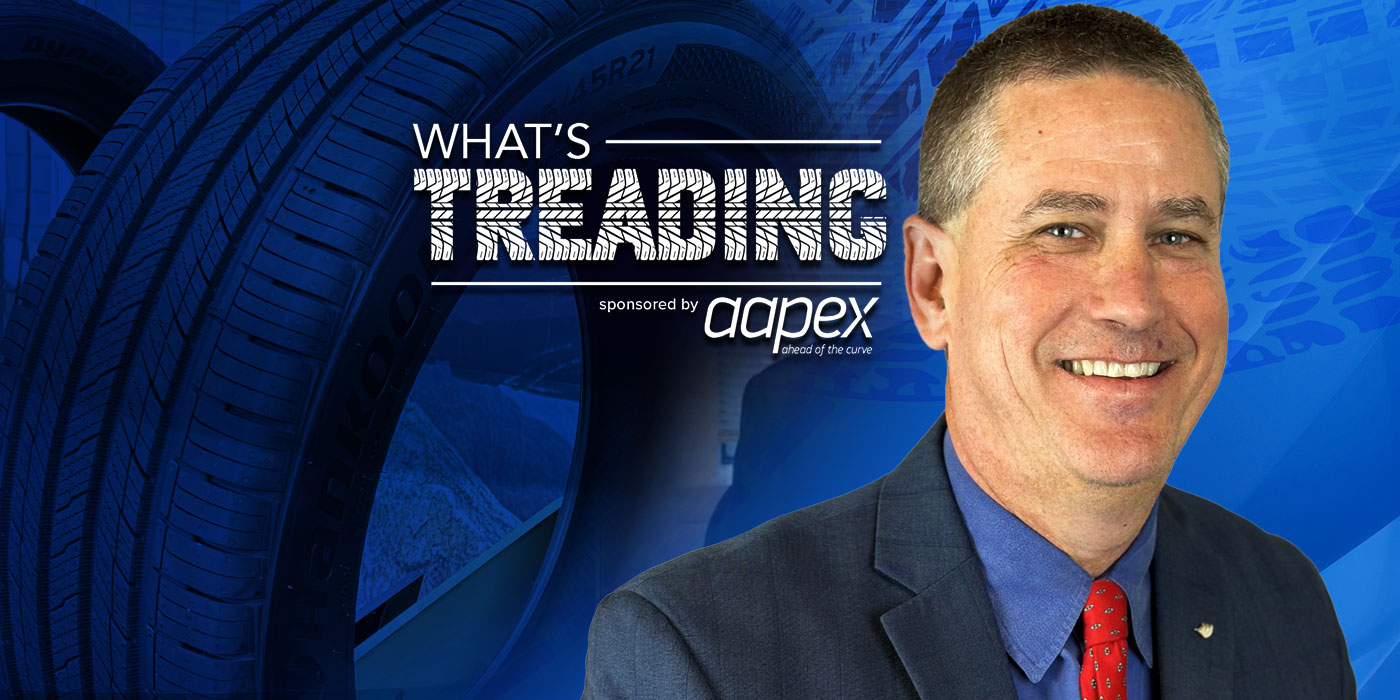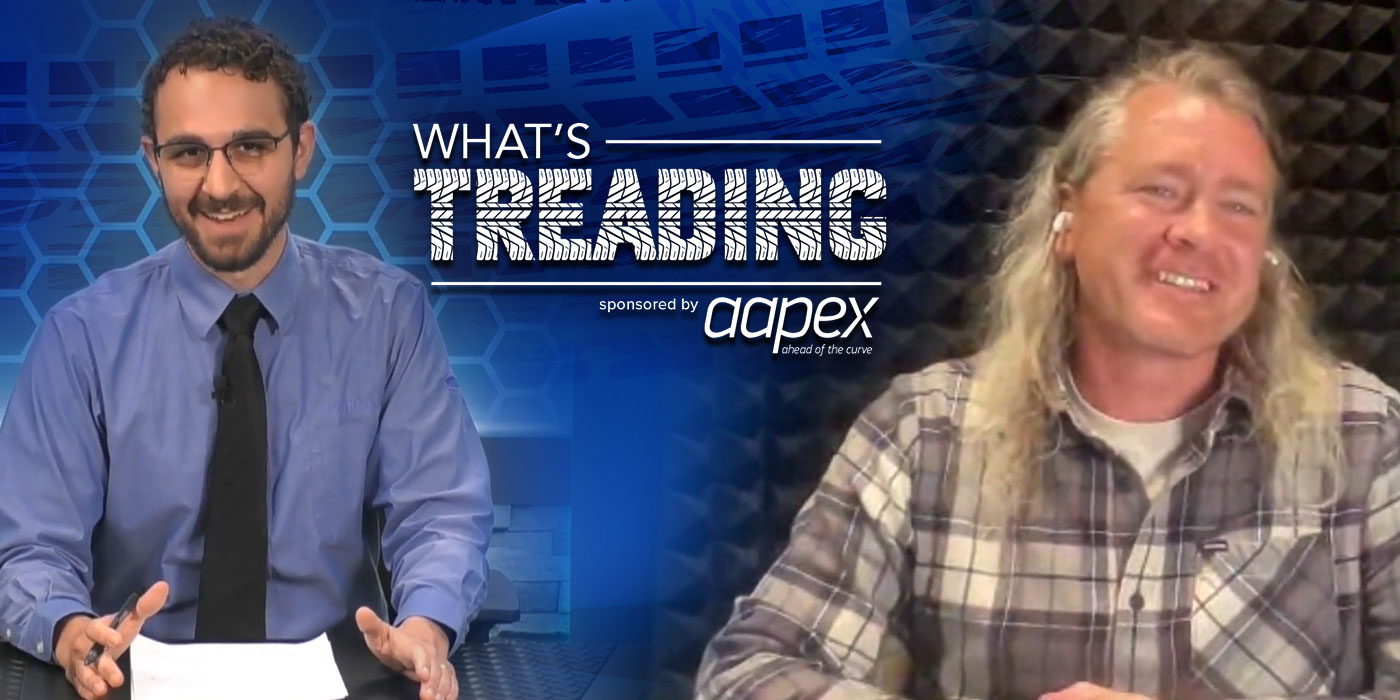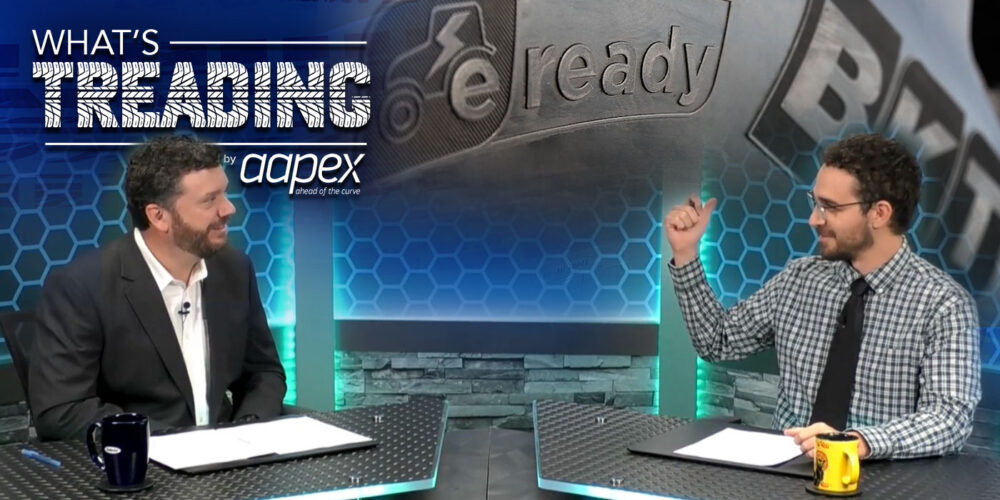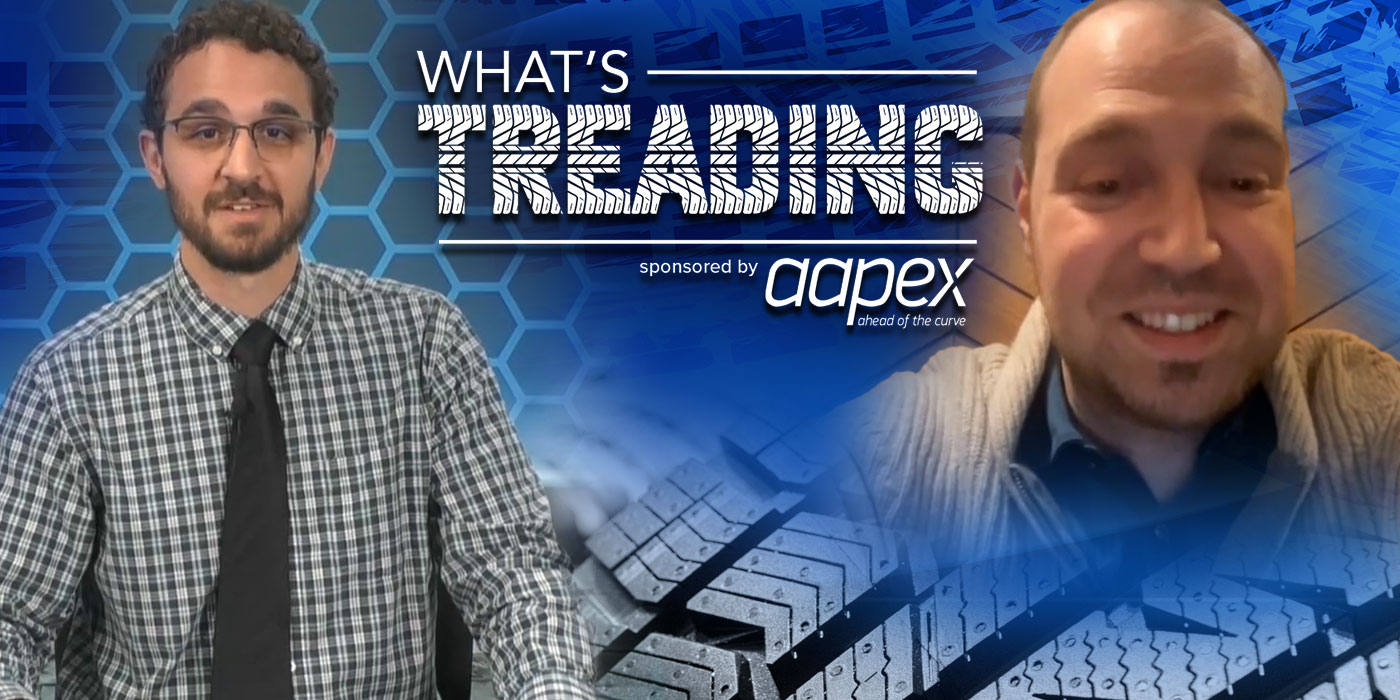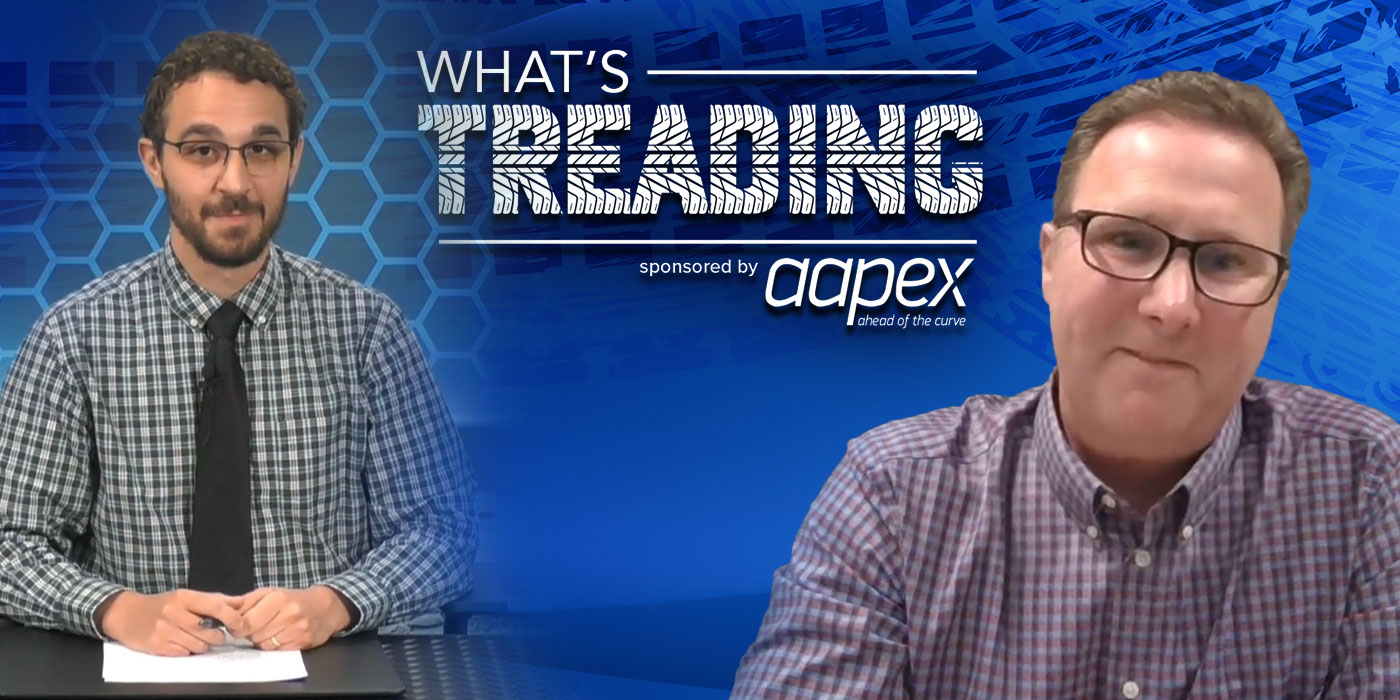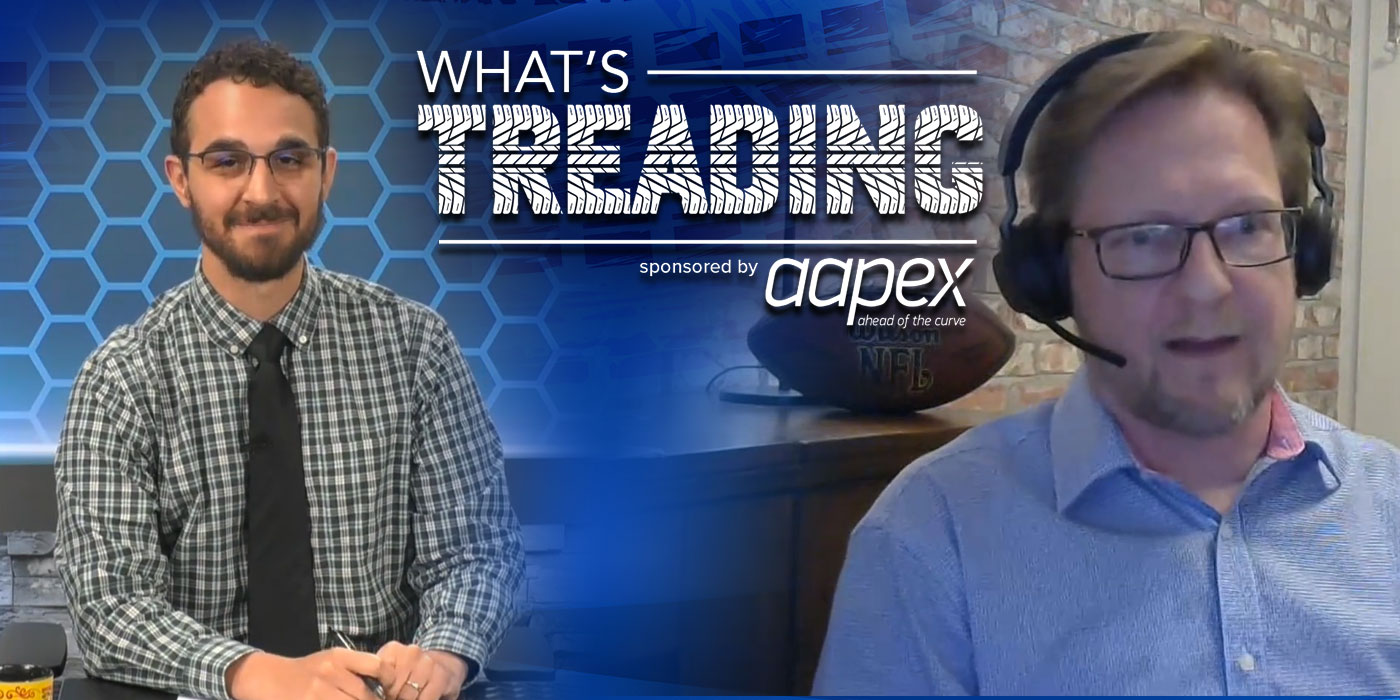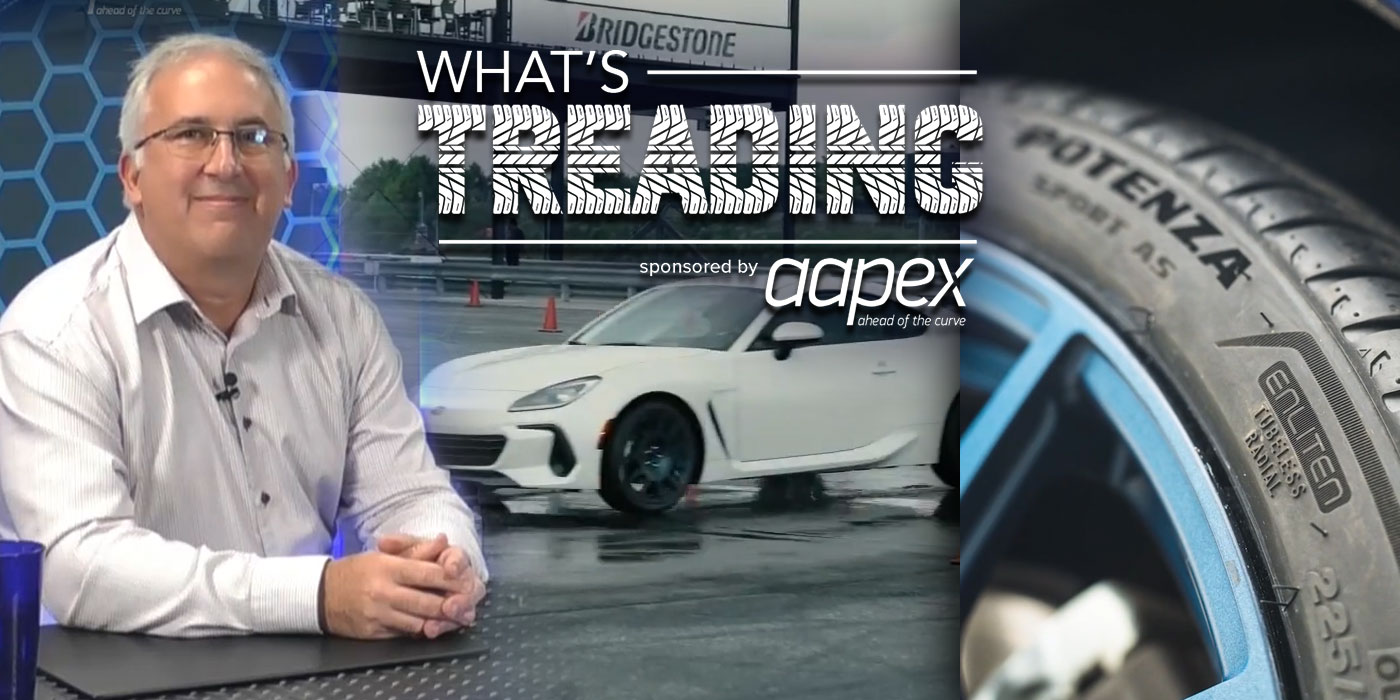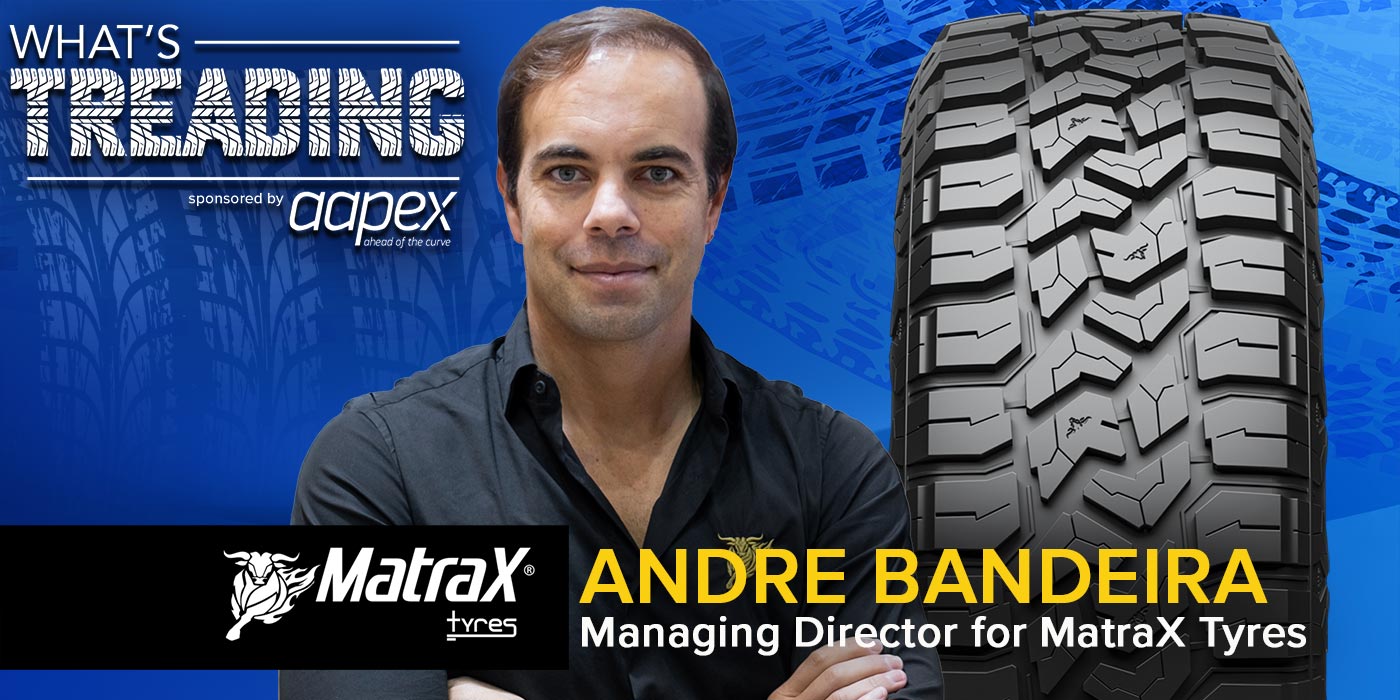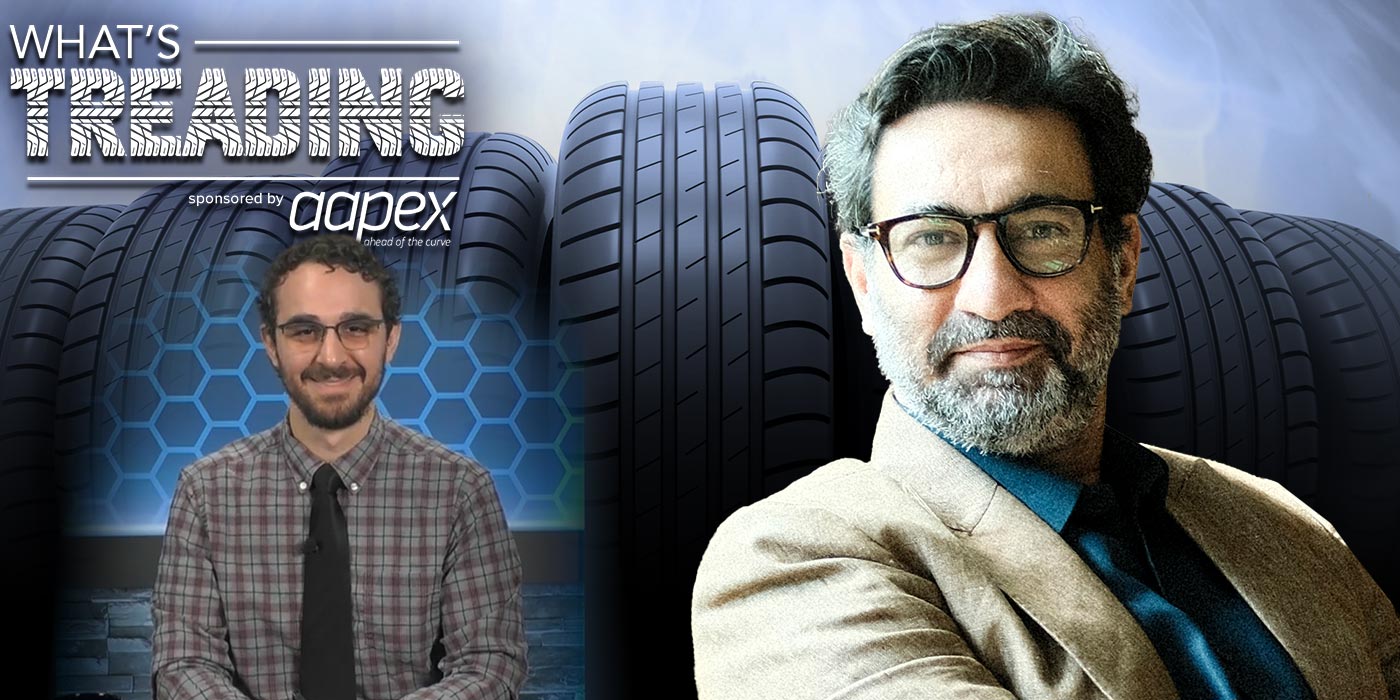With 77 locations across the New England states, Sullivan Tire & Auto Centers is definitely “one of the big guys” in the northeast. Like its competitors, it is eyeing growth and looking at where the business can expand its footprint. However, as it expands, it knows the business can get more corporate, so how do you sustain the personal, family-oriented approach to the business as you grow?
In this episode of What’s Treading with Tire Review, we spoke with Joe Zaccheo, Sullivan Tire’s recently-appointed president and CEO, who explained how the company is keeping that family feel as it expands. Zaccheo, a 26-year Sullivan Tire veteran, is a champion of the company’s “controlled growth,” especially as it looks for opportunities to expand in Connecticut and central and western Massachusetts. Yet, as a tenured member of the Sullivan Tire team, he’s been involved in employee growth initiatives –such as its leadership development programs–that have allowed the business to retain employees for decades.
In this episode, Zaccheo discusses:
- His start in the industry. (0:56)
- How acquisitions have become a central part of Sullivan Tire’s growth strategy. (2:04)
- The importance of culture and treating employees like family as well as challenges that come with acquisitions. (6:29)
- Where he sees Sullivan Tire’s “controlled growth” taking place. (11:05)
- How Sullivan Tire has invested in its employees, from evaluating compensation to incentives, which have led to 400 of its 1,200 employees being with the company for 10 or more years. (15:28)
- The start and evolution of Sullivan Tire’s Leadership Development Program and how it promotes cross-functional collaboration among teams across the company’s locations (18:06)
- How the company is confronting challenges, such as the current labor shortage and inflation, and why Zaccheo thinks it’s important for the company to “build the bench” of rising talent to take the company into the next generation (23:36)
Not a fan of watching the episode? Read the full interview below or subscribe to the audio podcast on Apple Podcasts, Spotify and Google Podcasts. You can also watch the video version of this podcast on YouTube.
Read the Full Interview Below:
Tire Review: I understand that you’ve been with Sullivan Tire since ‘96. How did you find the industry?
Joe Zaccheo: My first job out of college was working for O’Connor & Drew, a CPA firm in Quincy, Massachusetts, and I wanted to become a CPA. I started out auditing companies and Sullivan Tire was one of those companies. After doing that for five years, I got to know a lot about the company, the family, its values, the management team, and just saw how it was a great company to work for. I said, “Wow if I ever decide to work for a private company, this is the one I want to work for.” After leaving O’Connor & Drew, I did go to a small company but didn’t like it–it just wasn’t a good fit. I kept in touch with one of the partners at O’Connor & Drew and told him I’d like to work for one company and put systems in place. He said, “I think I have someone in mind that would be a great fit.” After a few interviews, and of course, they had known me as well, I came on board and 26 years later, it’s been unbelievable. We’ve really grown and plan to grow further.
TR: Tell me what the company was like when you started, in terms of footprint and processes, and how it’s changed over the years.
JZ: I thought it was a big company back then. We had about 25 or 30 stores, 300 employees and about $50 million in sales. Processes have changed. The computer systems have changed a lot over time… We’ve added new point of sale systems and back-end technology and whatnot. It’s still changing every day.
TR: Joe, you’ve served as CFO and COO and have been through some major growth periods with Sullivan Tire. Recently, we’ve seen acquisitions be an area of growth for the company. What do you all look at when you take on a business?
JZ: Yeah, years ago, we would do some ground-up construction, but the price of land and construction costs nowadays, and even the time to get a building up and running, just takes a very long time. There’s an enormous amount of soft costs and permitting and zoning issues. We have a pretty big wholesale business, and for a lot of our customers, we’ve become Uncle Sully–that’s part of our culture and we’re able to help mom and pops that maybe don’t have as much support in the background and develop relationships… We have grown recently by acquisitions. A lot of times, the owner hasn’t developed a succession plan. We look for a fit–that’s the first thing we look for. Do the employees do things like we do? They get to learn us over the years and see our drivers and salesmen come in, and they have a great rapport. We also look for a company that has a good reputation… somebody in our market. We are still a New England-based company. We don’t have plans to grow outside in New England. There are still quite a few towns in which we’d like to become part of the community. We look at the communities that the companies operate in. Also, these [acquisitions] could take five years. In fact, recently, our acquisition of C&R Tire was a relationship that developed over many, many years. Jim Chase and his son are still with us as well as their employees
Culture is so important. Mr. [Bob] Sullivan who started the business always said to treat all employees and customers as you would a member of your own family. And boy, that’s really what we do. It’s so important nowadays. A lot of the customers and employees, they’re just so stressed out with all the things going on in the world, still trying to get through COVID and the pressures of running a household. We have empathy for that, and that’s really part of what we’re all about. We want other companies to survive and grow, but we also understand not everyone has the succession planning in place, and we are a good exit strategy. We hire all the employees, we rent the building, and for us, it’s a much quicker turnaround than trying to build from scratch.
TR: Have you encountered any challenges that come with acquisitions?
JZ: There are always challenges. We also have to consider the emotional part. I mean, these businesses are the owner’s baby. They’ve had them for many years, sometimes decades. The other challenges are the systems. Sometimes, companies haven’t developed newer, modern systems, so we might have to go in and do inventory. We’re handed handwritten notes and the company might say, “Here’s our asset list and our inventory. Here are our receivables.” So there are challenges like that. Most often than not, we hire everybody, but there’s always a few from the prior company that may not be the right fit for us. Timing always comes into play. We’re on their timetable. There are always extenuating circumstances… We’ve been able to learn from our mistakes, and that’s part of our culture as well. We’re a learning organization. We’re always looking to get to the next level. We always do a debrief of what went well, and what we can improved on. We’ve got a great support team here.
TR: The emotional piece of that is huge. And, and like you said, creating relationships with these businesses and forming trust is also huge.
JZ: Trust is so important. We hold it like an egg … Trust and just doing the right thing is really how we go to market. With 67 years of doing that, we have generations of customers.
TR: You said Sullivan Tire is really concentrating on staying in New England, but can you give me a sense of what your vision is for the company’s growth and footprint?
JZ: At least for the foreseeable future in the next five years or so, there are still plenty of towns in New England that we have opportunities in. There are a number of deals on the table. We like to control our growth. It’s a lot of the same people that are doing the integration of the new businesses with running the current ones, so we don’t want to overtax anyone. On the other hand, we are in Connecticut with the truck business and wholesale business, but not for retail yet. So Connecticut is a big market in New England. We see a lot of growth opportunities in Connecticut, as well as central and western Massachusetts. And there are still a lot of spots in Maine and New Hampshire. We’ve been there for a very long time now. We’re embedded in the communities. I think that answers your question for at least the foreseeable future, but that’s not to say that if someone calls us and says, we have a chain here, would you take a look at it? We certainly would.
TR: Sullivan Tire is an independent tire dealer, a large one at that. So, how do you see rapid industry consolidation affecting independent tire dealers and then Sullivan Tire in general? It seems like the company is actually able to grow its footprint because of it. Is that right?
JZ: It does make it very difficult for smaller companies to survive. You need a lot of capital nowadays. You need a lot of training and development, and some smaller companies aren’t able to compete with that. There’s a big wave. It’s good and bad. We’re trying to not be overly aggressive but we want to protect those companies. We are Uncle Sully, and we’re trying to help and give best practice advice. Inevitably, we are a good exit strategy, but we’re worried. We’re a sweat equity company. We’re privately held. We grow through our profits and our sweat equity and we’re opportunistic. But we have a great business model, and I think that really helps keep us certainly relevant and growing. We’re not going to stop. We have 77 stores now, and we’re going to double in size over a period of time and grow our wholesale business and our commercial business. We also have a lift business that installs and services lifts in dealerships in companies like us. So we’re somewhat diversified, and we’re going to continue to grow in all areas.
TR: So, diversification has been a good tool for Sullivan Tire. What do you feel nowadays are competitive advantages the company has?
JZ: Our employees are our secret sauce. We have an employee base of 1,200 and 400 have been with Sullivan Tire for 10 years or more. We have employees with 20 years, 30 years, 40 years, even 50 years with the company. So, I think our employees and our training and development make us very competitive. The way we’ve built up trust in the communities we serve, and 67 years of being here. I think that’s a competitive advantage. We started a system called the Net Promoter Score. It’s where we give a one-question survey after your transaction. Our recent scores have been 87% consistently. That’s really off the charts for our type of industry.
Another major competitive advantage is the way we treat our customers. We get a lot of comments, both good and bad, and we follow up on every single one of them. Customers are actually shocked that we call them back. We have long-standing relationships with our vendors and that really helps us as well. That’s a lot of loyalty there.
It’s not easy running any kind of business, whether it be small, medium or large, but as long as you keep communications up, there’s transparency and there’s consistency on what the programs and pricing are going to be, that helps.
TR: You said out of 1,200 employees, 400 of them have been with the company for over 10 years?
JZ: Yes. One of our benefits is we have a longevity program. We talk about rewards and recognition, and we reward all the people that have been with the company for 10 years or more on an annual basis.
TR: That statistic really stuck out to me. Any other employee retention techniques or incentives that you feel have helped Sullivan Tire keep employees?
JZ: So we have a Leadership Development Plan that we started 15 years ago that’s really helped develop our up-and-comers and spotlight some people. Other things that we’ve done are just a simple phone call thanking people. We get a lot of [customer] comments from the Net Promoter Score, and if someone went way above and beyond, we’ll call the store and talk to the person that helped the customer out. We also do handwritten notes. People are shocked that they get a response like that unsolicited. We also have a holiday savings club where you can save money for the holiday season, and the company puts a match in on that. Tat’s been another great retention program
TR: I did wanna ask you about Sullivan Tire’s Leadership Development Program. Can you give a brief overview of it? How did it get started? Where is it today?
JZ: We have a board of directors, and about 15 years or so ago, they asked, “What are you doing as a company to develop the next generation of leadership?” Bob Sullivan took that to heart and really focused on it. So, he created our Leadership Development Program. It is based on the John Maxwell book, “Developing the Leader Within You.” It started out small with about 15 employees, and they were given mentors. Fast forward over the years, we’ve had so much growth in people that we needed to double the size of the class. So, we have up to 40 people in both the north class and in the south class.
It teaches our people how to handle certain situations and leadership techniques. The benefit is we put people from all parts of the company together, so there were a lot of crossover discussions and a lot of friendships developed. It really makes you feel good about the company, where it has gone and the vision for its future. We have over 250 employees now that have gone through the program and 80% are still employed at Sullivan Tire. We did have to take a little bit of a hiatus with COVID, but we’re going to bring it back in the fall.
TR: That’s great. So, Joe, one last question for you, what would you say are the company’s biggest challenges today and how are you and your team addressing them?
JZ: So, we all know there’s a shortage of technicians. [We’re always looking at] how we recruit, train and retain our technicians. We’ve developed a number of training programs, and we feel that’s been a great benefit. We’ve had almost 130 Master technicians and 15 Worldclass technicians, so we really promote education. Back to rewards and recognition, we actually have a Master tech bonus that we issue twice a year based on the number of certifications or designations as well as longevity with the company. We have a dinner once a year for all the Master technicians where we recognize the new ones that have received that designation.
We’ve also been kind of watching the hours too. We know people have families that they need to attend to and it’s all hands on deck, so we’re actually not open on Sundays. We believe Sunday is for family, and you need a day to recharge the batteries. Another challenge coming is “building the bench.” We talked about the Leadership Development Program and that has helped with that, but we need a second level of that as the company gets bigger. We always want to promote from within, so we need to develop a bench to handle more of the growth that we have coming.
Inflation–that’s a big challenge right now. Access to information is another concern out there. We have subscriptions to all the mechanical codes that you can imagine in vehicles. So we feel we’re meeting that one. And then, of course, we have some growing pains. We have warehousing that we’ve outgrown. Every time we get into a new warehouse that’s double the size we had before we think we’re good for now. But it seems like five or 10 years later, we say we need a bigger one. Then finally, access to capital and making sure we don’t outstrip our growth trajectory. We have great relationships with our suppliers and we have a lot of sweat equity. We know every day it’s a tied score and it’s a very competitive industry. We’re at it every day, and we feel like we do a great job.
TR: You mentioned access to technology and the codes piece. The right to repair issue is part of that and you all have locations in Massachusetts, which has been pretty much the battleground for this issue.
JZ: It has been an issue recently. All we say is the consumer should have a choice where they go to get their cars repaired. So, we just hope that continues.

